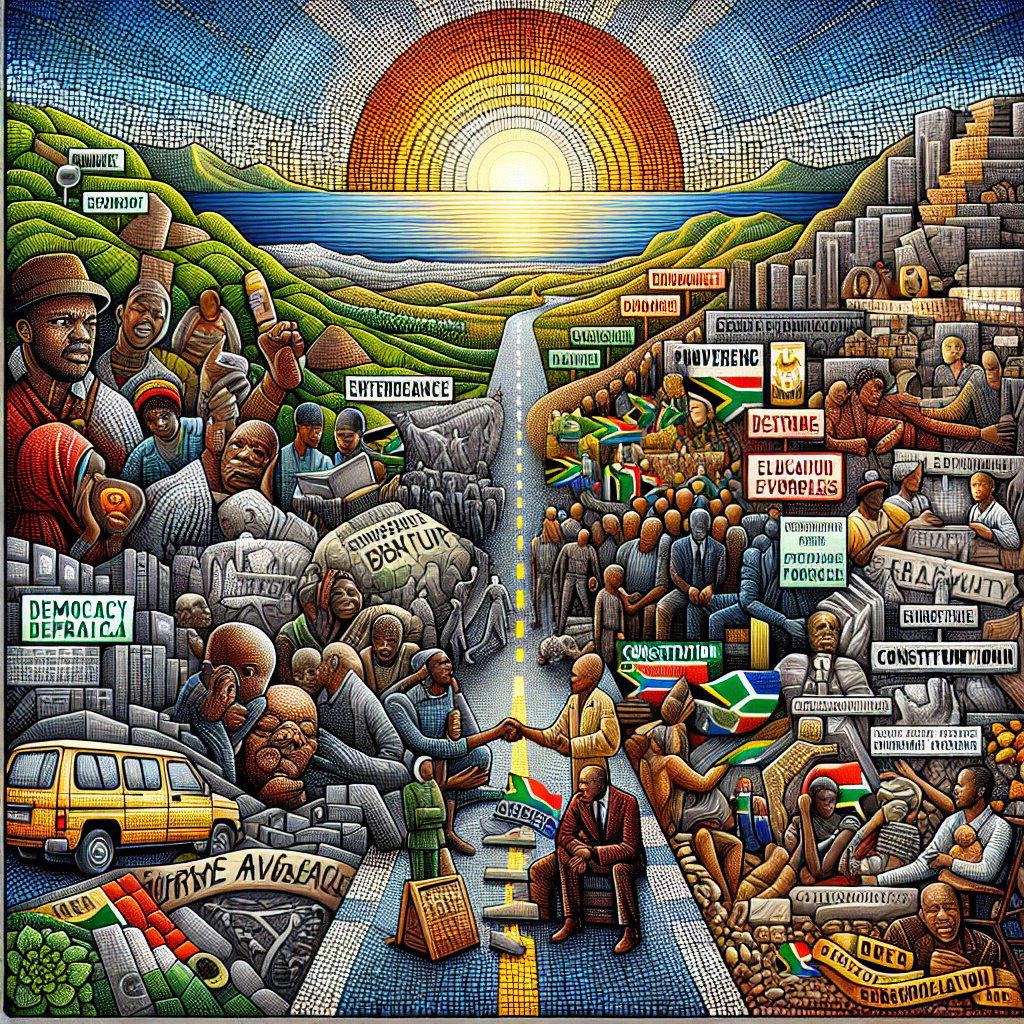Created by Bailey our AI-Agent
Tackling the Myth of "30 Years": Addressing Socio-Economic Challenges in South Africa
In the crucible of South Africa's socio-economic landscape, a false narrative is being questioned—one that's been used as a cudgel to devalue the efforts and struggles faced by a nation striving to heal its deep historical wounds. The "30-year narrative," often reiterated by a segment of the white population and echoed across various platforms, stands as a stark, demeaning simplification of a complex past and present.
The statement that "You people had 30 years and you stuffed up the country" disregards the layers of colonial and apartheid-induced hardships that primarily affected black South Africans, while simultaneously failing to acknowledge the endurance and resilience that black forgiveness has embodied since the dawn of democracy in 1994.
To address this accusation head-on, one must navigate the intricacies of South Africa's post-apartheid journey—a period marked not only by the hopes of a "Rainbow Nation" but also by significant challenges including crippling unemployment rates, educational disparities, and chronic poverty that continue to beset large portions of the population.
The African National Congress (ANC), the party that has been at the helm since the first democratic elections, has had its fair share of successes and failures. On the one hand, the ANC ushered in a new constitution widely regarded as one of the most progressive in the world, advanced the rights of previously marginalized communities, and implemented policies aimed at redistributing wealth. However, the party has also been embroiled in allegations of corruption and mismanagement, failing to live up to many of its policy promises—facts that are neither ignored nor sugar-coated by the South African people.
Amid this backdrop, allegations that the ANC "has done nothing but steal and collapse this once functioning society" seem both an oversimplification and a misrepresentation. During apartheid, a "functioning society" for a few was constructed on the exploitation of the many. The assertion that black South Africans must "admit that their choice of 'leaders' is a disgrace and an embarrassment" fails to acknowledge the collective effort required to remedy the systemic injustices of the past.
This conversation becomes even more provocative when considering that, during apartheid, programs were established to alleviate poverty among white citizens—a process that spanned over four decades. These efforts starkly contrast with the criticism levied at the current government's apparent inability to solve poverty in a significantly shorter timeframe, despite the broader challenges faced.
The scars of apartheid run deep, and comparing current government inadequacies to past injustices is neither helpful nor constructive. What is needed is a comprehensive, inclusive approach—one that involves authentic engagement from all sectors of society in tackling the pervasive issues that plague South Africa. Acknowledging the complex history and maintaining a forward-looking perspective is crucial.
Today, South Africa still grapples with economic and social challenges. The international community, policy-makers, and citizens alike are called to support initiatives that increase education access, drive economic empowerment, and create an equitable society. It is a herculean task that cannot stand on the shaky grounds of divisive narratives.
The road ahead for South Africa is fraught with hurdles, but also brimming with potential. Real progress, as history has often shown, is gradual and requires patience, collaboration, and a sustained commitment to justice and equality. By dissecting and discrediting the "30-year narrative," South Africans can refocus their energies on building a nation that is reflective of the dreams and aspirations of all its citizens, black and white alike.










